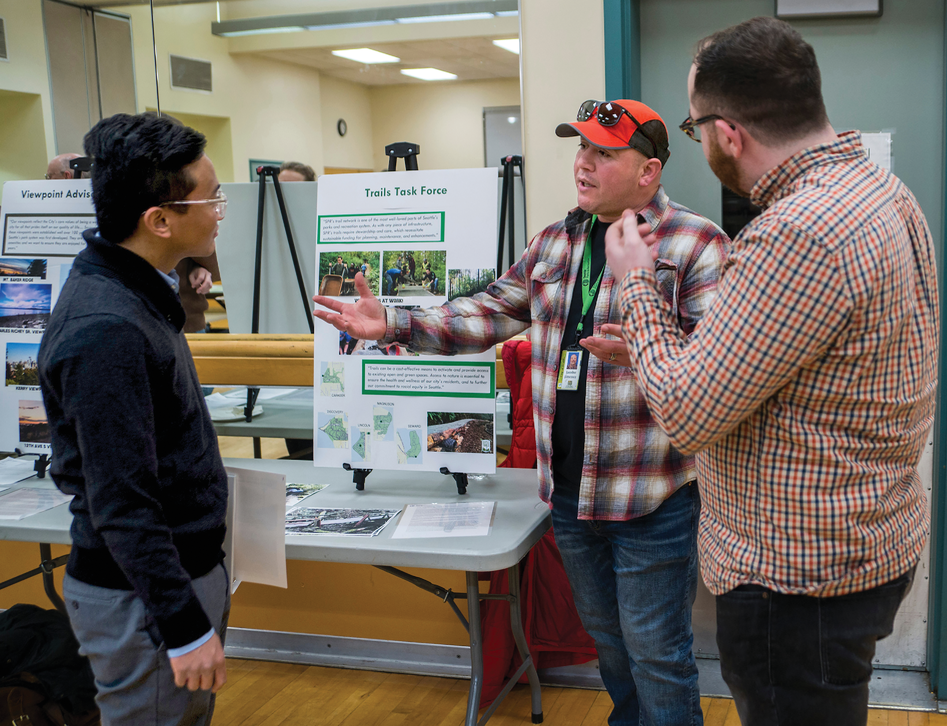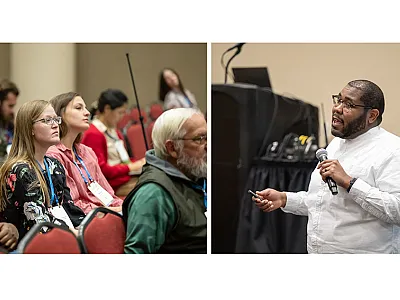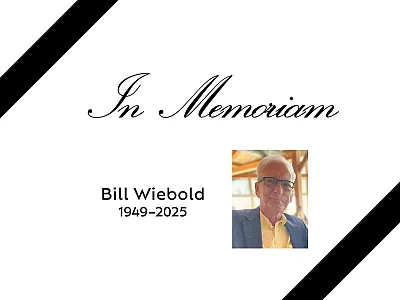Professional Civic Engagement at the Local Level

Agronomy, soils, and crop science professionals, whether in academia, industry, or consulting, have much to offer the communities, counties, and even states in which they live. Service on local government commissions, boards, or councils is service to the profession. Engagement at the local level not only serves the community, but it diversifies your resume, promotes the science and ethical standards of our profession, and might also be educational and rewarding for you.
Sure, local engagement requires time and energy, two things professionals with families often lack with all of their other commitments. But not all local engagement service requires significant inputs
of time or energy.
As a young professional whose job required a significant amount of travel, I did not think my early attempts at local engagement were beneficial to either party. Over time, I came to realize that I had
much to offer to organizations, even if it was only to proofread documents and make suggestions on how to improve them.
You Have Skills that Local Organizations Need After earning my doctorate in agronomy, I went on to serve in the Army. The Army taught me to look at problems from a process perspective and that words mattered. I was sent to various Army schools where I was taught more about writing than about tactical employment of forces. The result of this training is that I now look at the writing styles in documents from the perspective of clarity and conciseness. Bringing this skill set to local organizations can have great value. Your skill sets may be similar or vastly different than mine. Regardless of your skills, you can contribute to an organization based on your academic, professional, or personal interests and experiences.
Engaging at the local level can be as simple as saying “yes” when asked or as challenging as having to stand for election. I’ve been asked to serve in positions because I’ve been seen as a leader, or a donor, and I’ve sought positions on panels or commissions where I have an interest. I wasn’t always invited to join, but often I have been.
If asked to serve, ask about roles and responsibilities of the people currently serving in positions. Ask about the time commitment expected of you and the frequency of meetings. Understand the mission of the organization you are being asked to join. Also consider its values and how they align with your values.
Benefits of Local Engagement
Local engagement is not limited to service on boards or commissions. It includes presenting a lecture to a gardening club or the local cattlemen’s association. Helping Scouts earn a merit badge is local engagement. What was once called volunteerism is now volunteer engagement or local engagement. It’s all about making the time and effort to apply your knowledge and skills outside of the workplace for the betterment of the community.
Local engagement helps you build your local network. That might not seem important, but it is often surprising who knows who and has influence in communities. Service on committees can be a means to learn new skills that may come in handy later in your professional career or personal life. Holding a leadership position in a volunteer organization may be a good learning experience for becoming a department chair/head or a manager in any capacity.
Understanding how communities engage in local grant-funding processes may be valuable when trying to form a coalition of partners to apply for a grant for a research or demonstration project. I was recently asked, out of the blue, to serve on a committee tasked with developing the Conservation Federation of Missouri’s next five-year strategic plan. I’m not a strategic planner, but I can learn the fundamentals to ask the right questions. As a process-oriented person, my time on the county’s Extension Council and city’s Environmental Quality Commission has taught me how government works (in terms of processes) and how decisions can be influenced by members’ input, especially those members who have professional credentials to support their positions. Your local engagement makes a difference in your community!
Where to Get Started and How to Transition Out of a Position
What are some of the local engagement opportunities you may want to consider? Your city or town will have several citizen committees, boards, and commissions such as parks and recreation, environmental quality, or community betterment, to name a few. Usually, an interested citizen makes their interest known and is appointed by the mayor or city council for a specified term. Counties have similar committees, but they also have Extension councils, fair boards, 4-H councils, and Master Gardener/Naturalist/Forester programs—all of which function through the efforts of volunteers.
There are also private organizations operating at the local and regional levels that you could engage with, such as scouting programs, soil and water conservation districts, and cattlemen’s associations. Once you join an organization, can you get out? There comes a time in most volunteers’ service to an organization when it is time to pass the baton. Agreeing to serve is not a life sentence. Help the organization replace you by finding a good candidate to take your spot. Know when to go. Look for a natural transition point, and let the organization know of your decision four to six months in advance if you can.
Local engagement gives you a stronger voice in the decision-making process. If you aren’t at the table, you don’t have a say in the outcome.
If you are passionate about the decisions being made in your community, engagement gives you influence. It is much harder to influence the actions of a governmental or volunteer organization if you aren’t engaged as part of it. Local engagement gives you a stronger voice in the decision-making process. If you aren’t at the table, you don’t have a say in the outcome. Some of my most rewarding life experiences have stemmed from volunteering to serve. I hope you find local engagement to be a rewarding experience too.
Text © . The authors. CC BY-NC-ND 4.0. Except where otherwise noted, images are subject to copyright. Any reuse without express permission from the copyright owner is prohibited.








